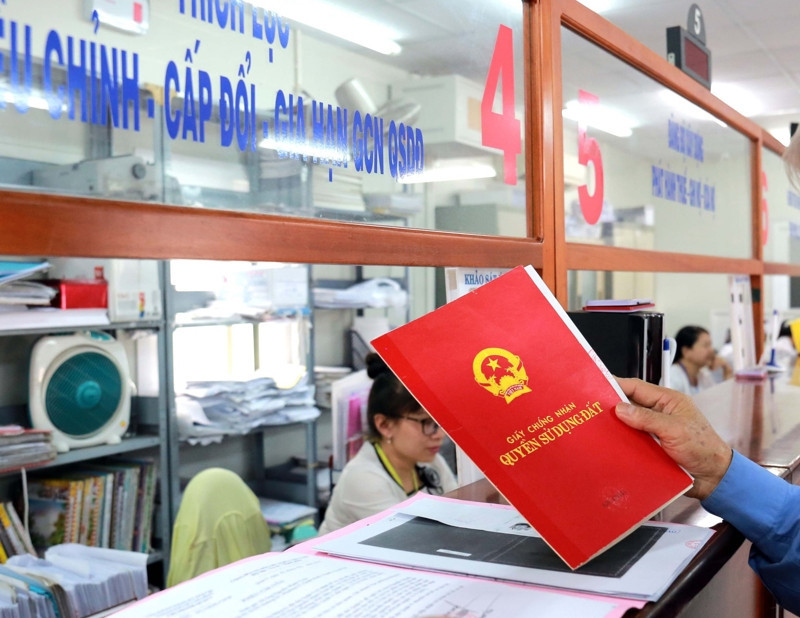From July 1, Vietnam will implement a two-tier local governance model, alongside a series of new economic policies in critical sectors such as taxation, planning, minerals, e-commerce, and agriculture.
These changes are expected to create a more transparent legal framework, boost production and business activities, and improve state management efficiency.
Key highlights of new economic policies

Starting July 1, the two-tier governance model officially takes effect, streamlining the administrative apparatus and increasing decentralization from the provincial to commune level.
Accompanying this shift are new laws, decrees, and circulars across essential sectors, laying the legal groundwork for business operations and public administration.
The 2024 Law on Value-Added Tax (VAT) introduces several changes. Items such as fertilizers, agricultural equipment, offshore fishing vessels, and securities services are no longer tax-exempt and will now be subject to 5% or 10% VAT. Imported goods for charitable and relief purposes are newly exempted.
VAT for imports will be calculated based on the total value of the goods plus import tax, special consumption tax, and environmental protection tax.
Promotional goods and services will enjoy a 0% VAT rate, easing burdens on businesses. The law also mandates cashless transactions for all VAT credit and refund claims.
Decree 117/2025/ND-CP on e-commerce tax management requires platforms like Shopee, Lazada, and Tiki to withhold and remit VAT and personal income tax (PIT) on behalf of sellers.
VAT is set at 1% for goods, 5% for services, and 3% for transport and goods-related services. PIT rates range from 0.5% to 2%, depending on the type of business.
This policy enhances transparency and levels the playing field between e-commerce and traditional trade.
The Law on Geology and Minerals imposes stricter safety requirements for mining operations. High-risk mines must employ trained personnel, use equipment suited to geological conditions, and have emergency response teams.
The Urban and Rural Planning Law mandates that plans be publicly disclosed within 15 days of approval. It prohibits unlawful interference, forgery, or misuse of planning funds. Detailed regulations govern zoning targets, housing allocation, infrastructure, and environmental protection.
Decree 151/2025/ND-CP authorizes commune-level People’s Committee chairpersons to issue land use rights certificates, including for initial issuance and land adjustments. The decree also expands agricultural credit, allowing unsecured loans and simplifying appraisals, with future assets eligible as collateral.
Circular 86/2024/TT-BTC replaces tax codes with personal identification numbers, simplifying administrative procedures.
National Assembly Resolution 204 reduces VAT by 2% for goods and services subject to 10% VAT from July 1, 2025, to December 31, 2026, excluding sectors like telecommunications, finance, and real estate.
Pushing for digitalization and transparency
Together with the two-tier governance model, the new economic policies promise a turning point in state management and business operations, with far-reaching impact on the economy, enterprises, and citizens.
The Urban and Rural Planning Law’s 15-day disclosure requirement will help curb speculation and land price manipulation, especially in major cities like Ho Chi Minh City and Hanoi. Real estate companies must adhere to clear planning standards, ensuring transparent and sustainable development. This benefits buyers and stabilizes the market, reducing the risk of a real estate bubble.
Decree 117/2025 fosters e-commerce growth and curbs tax evasion by requiring platforms to withhold taxes for sellers, fostering fair competition between online and traditional trade.
Platforms like Shopee, Lazada, and Tiki will need to upgrade systems to comply, but this will enhance consumer trust. The logistics and digital marketing sectors are expected to benefit from standardization, while sellers will be forced to declare income transparently. However, small individual sellers may face initial difficulties due to increased tax burdens.
In agriculture and rural development, Decree 156/2025/ND-CP expands credit access for businesses and cooperatives. Simplified procedures and acceptance of future assets as collateral will boost high-tech farming and digital transformation in rural areas. Mountainous and remote provinces will benefit from favorable funding, supporting sustainable rural development.
The Law on Geology and Minerals strengthens sustainable mining oversight, requiring rigorous technical standards. This compels businesses to invest in technology and personnel, increasing upfront costs but ensuring safer operations and reduced environmental impact. Resource-rich provinces like Quang Ninh and Thai Nguyen will benefit from stricter regulations.
Using personal IDs instead of tax codes and decentralizing land certificate issuance to the commune level will ease workloads at the provincial and district levels, while shortening administrative processes for citizens. Small businesses and individual entrepreneurs will benefit from faster, more transparent tax procedures.
Tax authorities and local governments will also need to invest in digital infrastructure to ensure synchronized data systems.
Circular 39/2025/TT-BCT caps promotional discounts at 50%, curbing practices of inflating prices before discounts. Retailers and e-commerce businesses must adjust marketing strategies, enhancing transparency. This protects consumers and fosters fair competition, especially in major retail and supermarket chains.
These policies reflect a broader trend toward modernizing state governance, enhancing digitalization, and promoting transparency. The two-tier governance model will enable faster and more consistent policy implementation, benefiting businesses and the public. Key sectors and major cities are set to undergo significant transformation.
Manh Ha